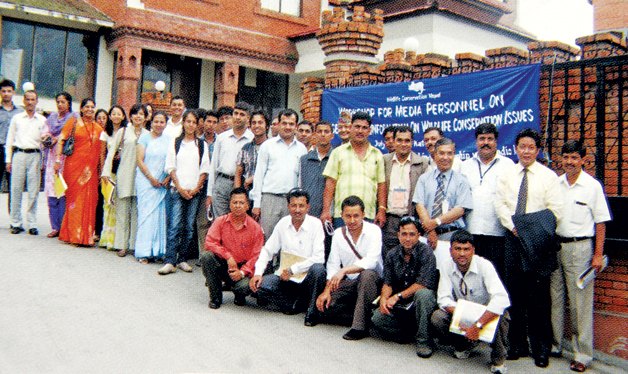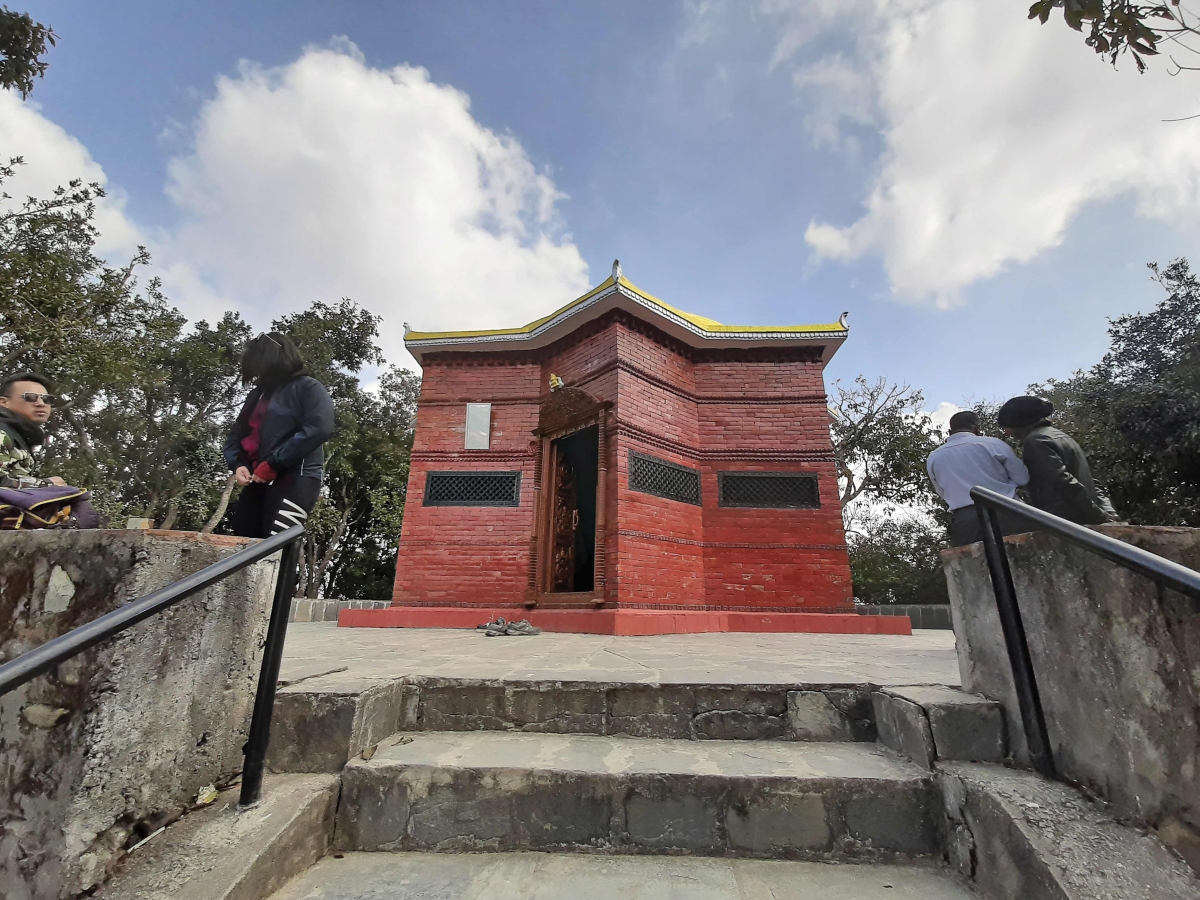
Last year, Wildlife Conservation Nepal (WCN) helped capture 32 poachers from different parts of the country. “Imagine the extent of damage these people could have inflicted were they still loose out there in the wild,” says Prasanna Yonjon, CEO of WCN. Prasanna says, “WCN is not a whistle-blower and, therefore, does not believe in making noises. We have widespread intelligence gathering mechanism that helps us to provide tip-offs to the police and other concerned departments to carry out investigation or take further actions.
Our boys work round the clock to monitor activities of poachers and people trading in wildlife.” He then goes on to explain how his foot-soldiers act like decoy customers or even go deep into the forests masquerading as buyers to gather information on the network of wildlife traders. WCN's field staffs wend their way through dense forests or high up the hills to track the culprits down, and coordinate with policemen and other enforcement agencies to arrest the criminals from places fraught with potential dangers.
WCN’s reports state that in the year 2006 alone 19 rhinos were killed to assuage poachers’ greed. The future of tigers, too, is threatened owing to the growing demand for their skins and bones in China. The organization’s intelligence findings show that in Kathmandu the hotspots of the illegal wildlife trade are Balkhu, Kalanki, Balaju, Thamel and Boudha. Over 90% of
arrests that take place every year are from these areas. Some other startling findings of the organization include: the growing involvement of women in poaching, and incursions of hunting community called Bawariyas and Behaliyas from Haryana, India. WCN’s July 2006 newsletter states that Sariska National Park in India lost all its tigers to Bawaria poachers in the previous year.
Not everyone engaged in wildlife trade, however, is a poacher. There are lots of poor people who jump into the fray to earn quick money without realizing the risks involved, though many are willing to take a chance knowingly. “Most of the times it’s they who get caught, as they are not professional hunters and lack the skill to evade authorities,” says Prasanna. “The people we normally encounter are poor and have been encouraged by big time traders to carry out the task, or they are lured by the prospect of making quick bucks,” he explains. These people, says Prasanna, have children and family to look after and in most cases they are the sole bread winner in the family.
Apart from monitoring, since WCN is also working to promote livelihoods of the poor, they are very careful about having people arrested. “It is very difficult decision, as we know by experience that most of the time the ones who get caught are naïve,” he says. So, if we happen to run into naïve recruits out to try their luck, we warn as well as educate them about the flip side of the trade. Serial poachers, on the other hand, are either nabbed by our field staff and turned over to the authorities or are ambushed so that concerned officials can catch them red hand.
Dealing with poachers and tackling one’s own temptations are not easy though. Many times when a WCN staff members nail a poacher, they are presented with huge monetary offers for letting the culprits go free. At any given time, therefore, the staff of WCN constantly battle two hurdles: both risk and temptation. “We get regular threats from poachers, and over time our staff has grown used to harassment and intimidation,” says Prasanna. “Sometimes our guys come across people who they can easily overpower or find places where the poachers have escaped, leaving their wares behind,” he says, and adds: “In those cases, one of the boys calls me up and says ‘Sir we are right in this house and there are these many leopards skin or tiger bones, what to do?’” I bluntly tell them to go have fun says Prasanna, in a slightly agitated tone. His staff know exactly what to do in such instances, but their stinginess infuriates Prasanna when they ask such questions. “But the caustic tone in my reply catches them off guard, and they get the right message and do what they ought to,” says Prasanna. I know they are only humans and make sure not to come down heavy on them, he says.
Deputing sleuths to assess the ground realities and discourage wildlife crimes is just a part of the broad based conservation efforts that the WCN undertakes. Its other programs are more or less focused on building awareness through designs that engage more and more people from different backgrounds. WCN sensitizes people about the need for conservation through such programs as a Nature School, Wildlife Photography Competitions, radio programs, and other national level initiatives designed to appraise government agencies that have a role in curbing wildlife trade. WCN, today, has professors, academicians, naturalists, entrepreneurs and enforcement officials on the board of trustees and the organization’s members coming from diverse backgrounds. All of them are working towards the organization’s vision of creating a civil society and community that care to protect and conserve the natural flora and fauna of Nepal.










